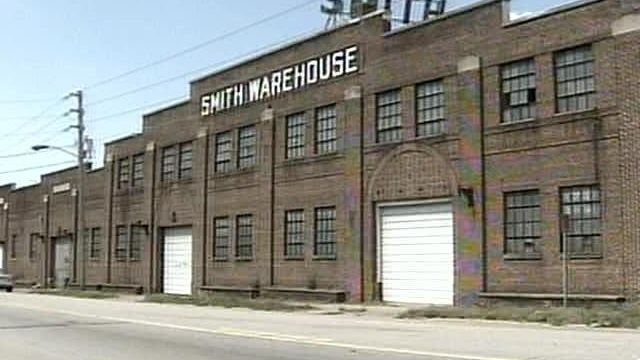Local News
Wilson Warehouses, Empty of All but Memories, Becoming Memories Themselves
A physical reminder of Wilson's tobacco legacy is succumbing to the changing economy of eastern North Carolina.
Posted — UpdatedWILSON, N.C. — A piece of Wilson's history is disappearing brick by brick.
Crews are demolishing the Smith Tobacco Warehouse buildings built in 1928 and 1929. In the process, they are trying to salvage as much of the historic brick and wood as possible to use elsewhere.
One of the buildings has been empty for nine years, and the owner says it’s just too expensive to keep the structure.
Lynn Wagner is Director of the Tobacco Farm Life Museum, where they work to preserve the story of the tobacco warehouses of Wilson, even when structures like the Smith buildings have to come down.
The main Smith building was “very prominent in downtown Wilson. It was a very important warehouse,” she said.
Wagner says opening day of tobacco sales used to be a celebration as people packed into these downtown warehouses, most of which are now abandoned.
“I don't think there will ever be anything that has that kind of importance because it impacted every part of the society,” she explained.
Jennifer Lantz, who heads the Wilson Economic Development Council, has a different perspective.
“Even though it's unfortunate, it is very positive because it shows that our economy is changing and growing,” Lantz said.
It is unlikely that one large industry could replace the dominance that tobacco held.
The new Wilson economy, observers like Lantz said, depends on a combination of industries like large pharmaceutical companies and small businesses, new retail and a different style of agriculture.
It is never easy to let a piece of history go for progress, but the old bricks and the memories made inside the walls they made live on.
At one time, the owner hoped to sell the Smith warehouses for restoration like the American Tobacco project in Durham, and some of the warehouses are home to several businesses.
Economists say, however, that it's harder to make an American-Tobacco-style transition in a smaller city like Wilson.
• Credits
Copyright 2024 by Capitol Broadcasting Company. All rights reserved. This material may not be published, broadcast, rewritten or redistributed.





